Measurement Worksheets for Ages 6-9
105 filtered results
-
From - To
Unlock the world of measurement for children ages 6-9 with our engaging and educational worksheets! Designed to build foundational skills, these worksheets cover everything from understanding units of measurement to comparing lengths, weights, and volumes. Our interactive printables make learning fun and are perfect for classroom use, homeschooling, or extra practice at home. With clear instructions and colorful illustrations, young learners will stay motivated and excited as they master essential measurement concepts. Elevate your child's math skills today with our expert-crafted resources! Ideal for parents, teachers, and tutors striving for academic excellence.
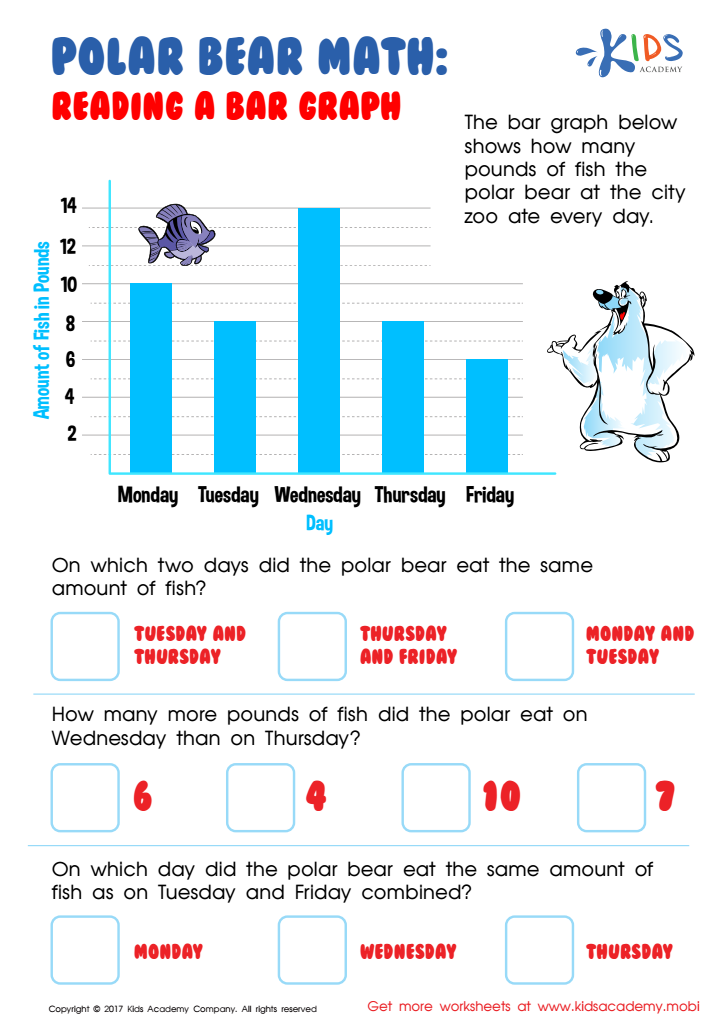

Reading Bar Graph Worksheet
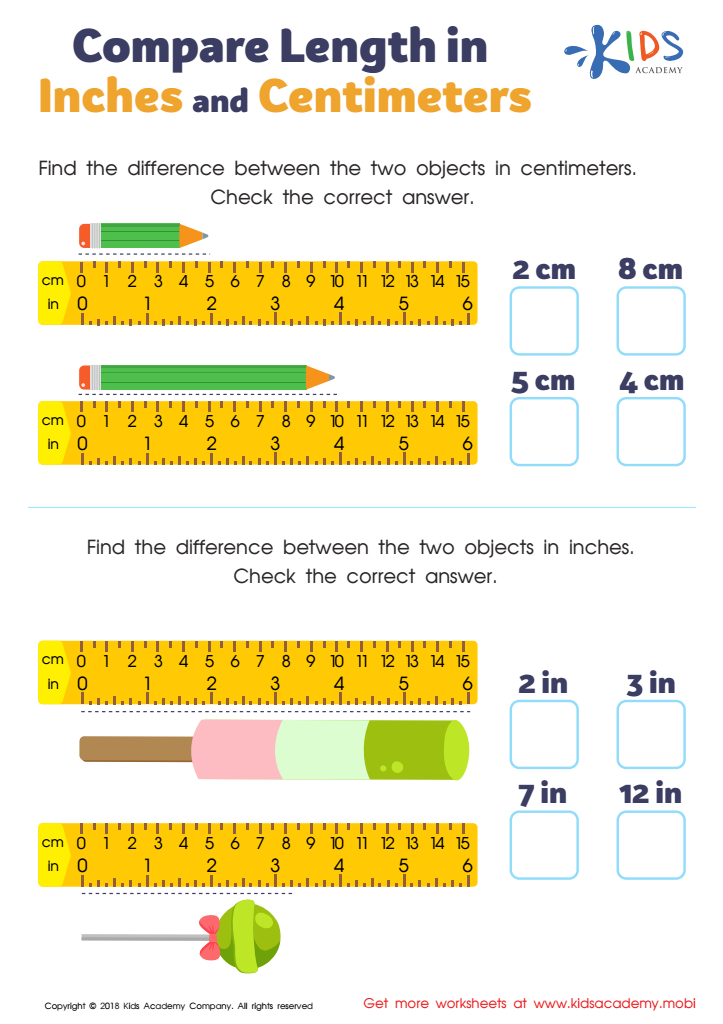

Compare Length in Inches and Centimeters Worksheet
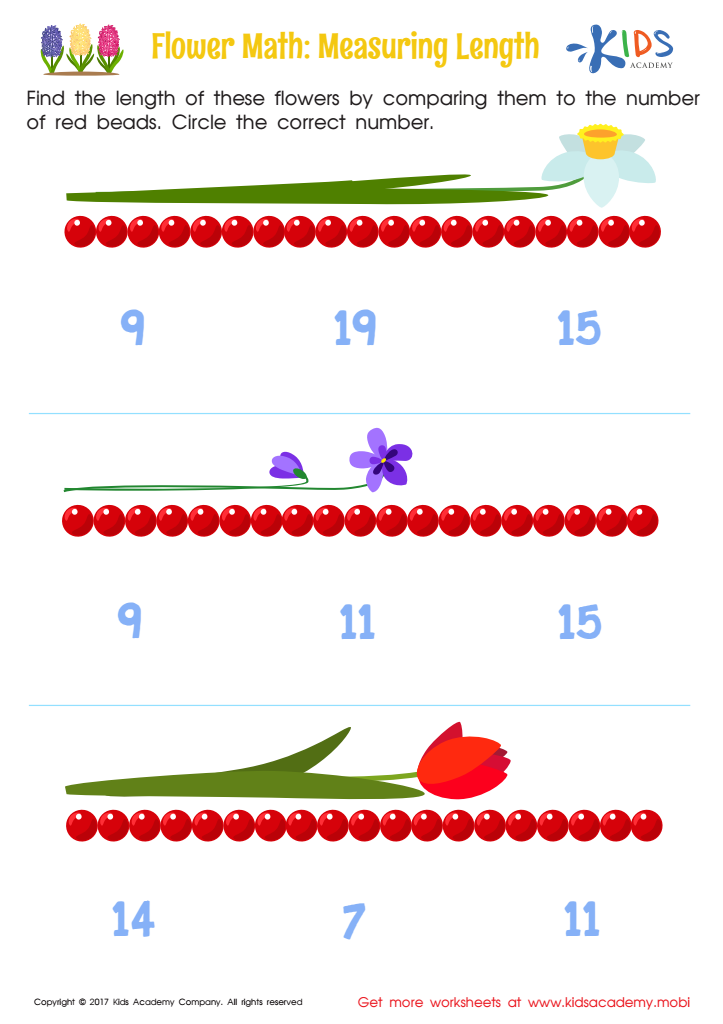

Flower Math: Measuring Height Worksheet
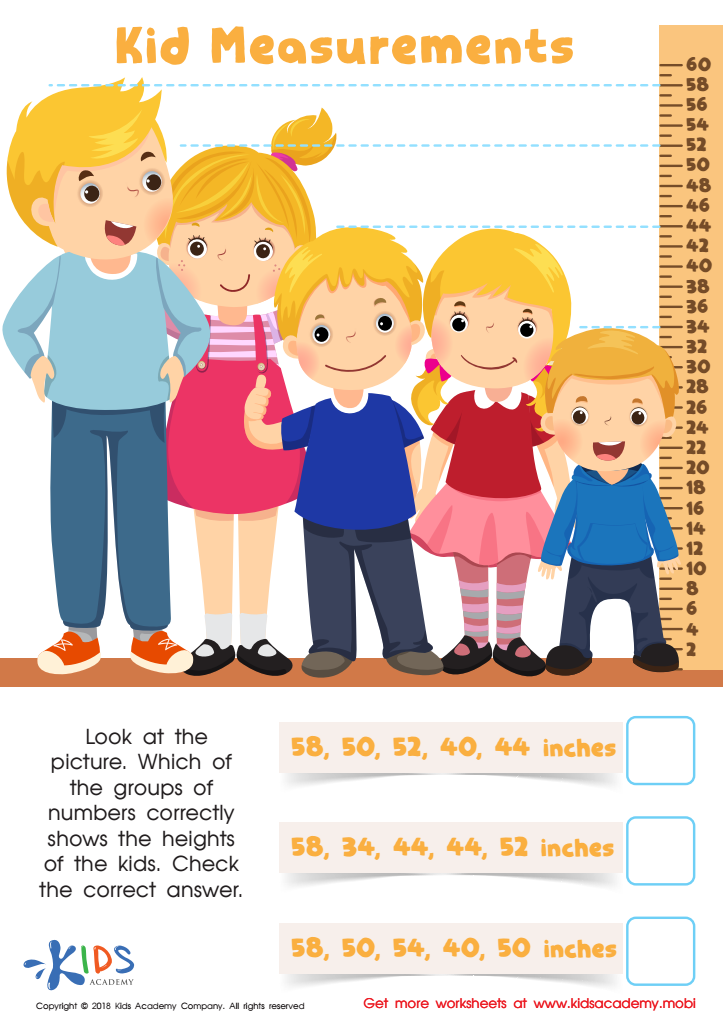

Kids Measurements Worksheet
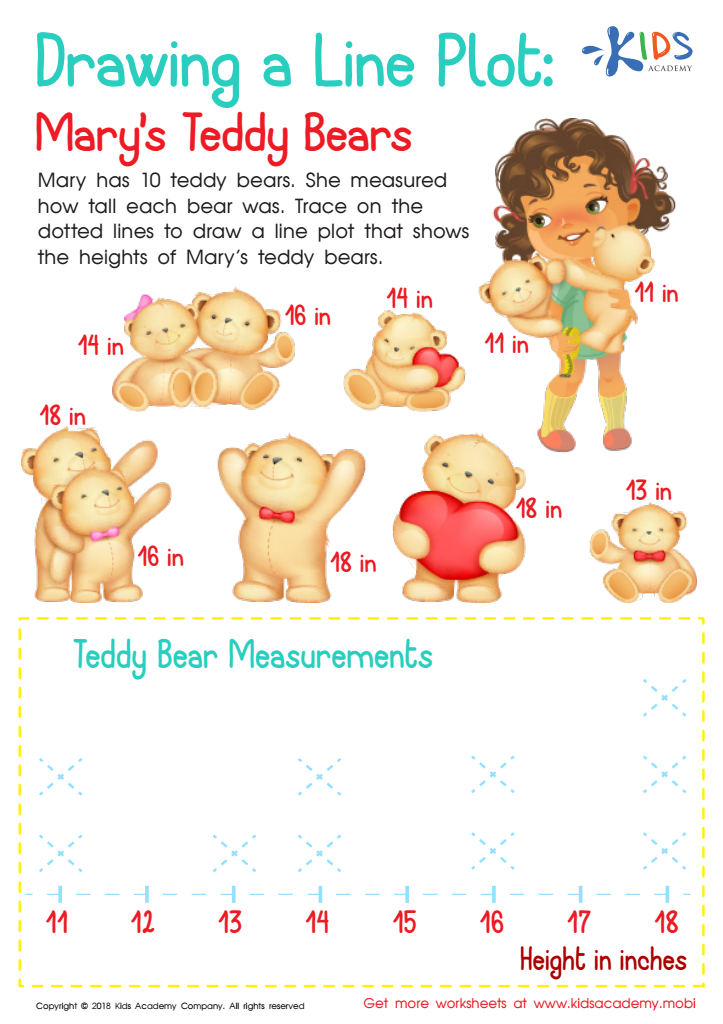

Drawing and Line Plot: Mary's Teddy Bears Worksheet
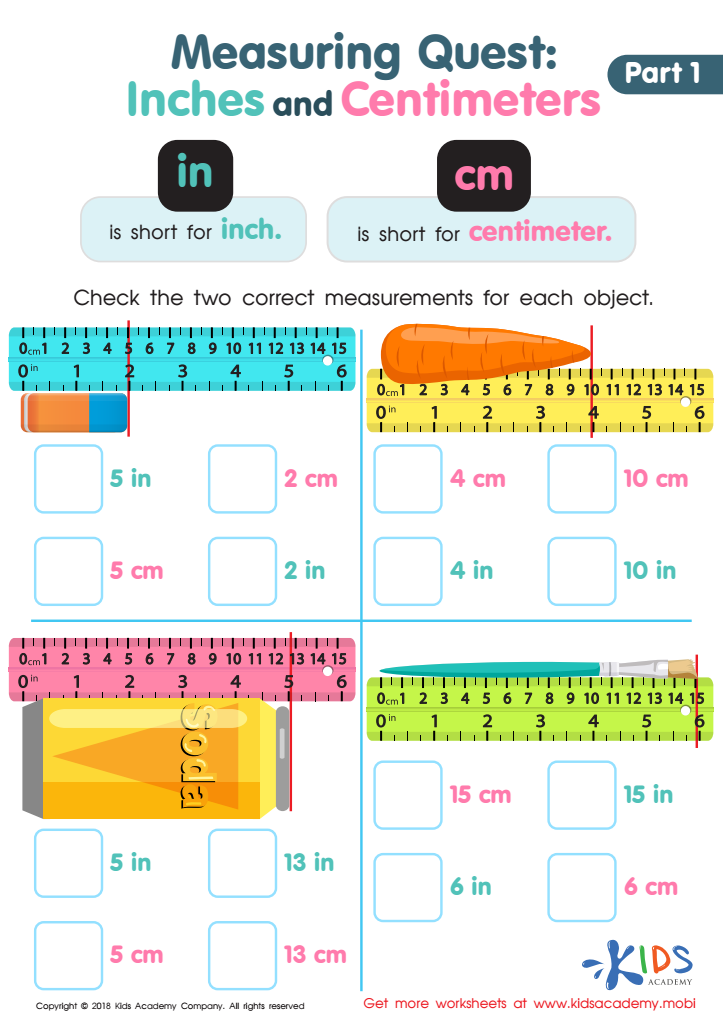

Measuring Quest: Inches and Centimeters Worksheet
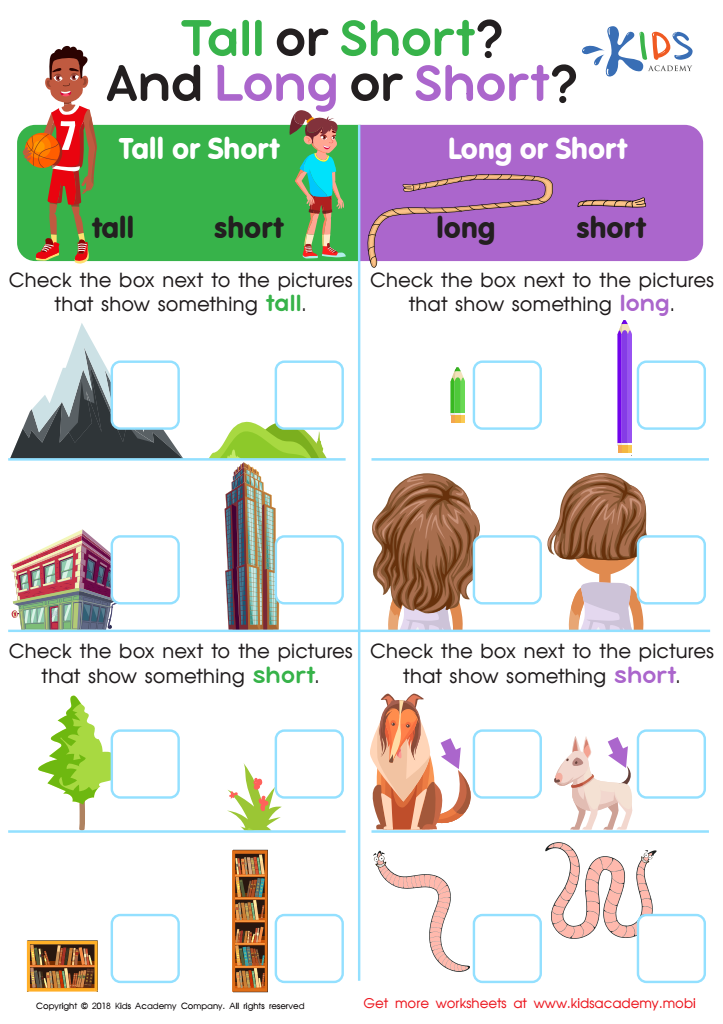

Tall or Short and Long or Short? Worksheet
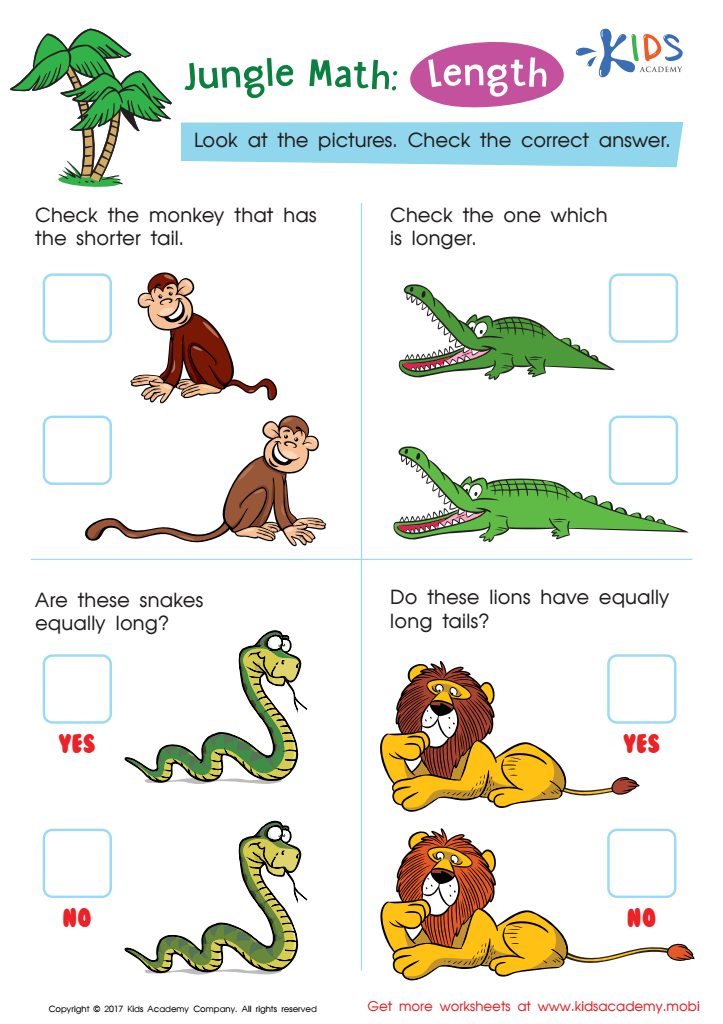

Which One Is Longer - Length Worksheet
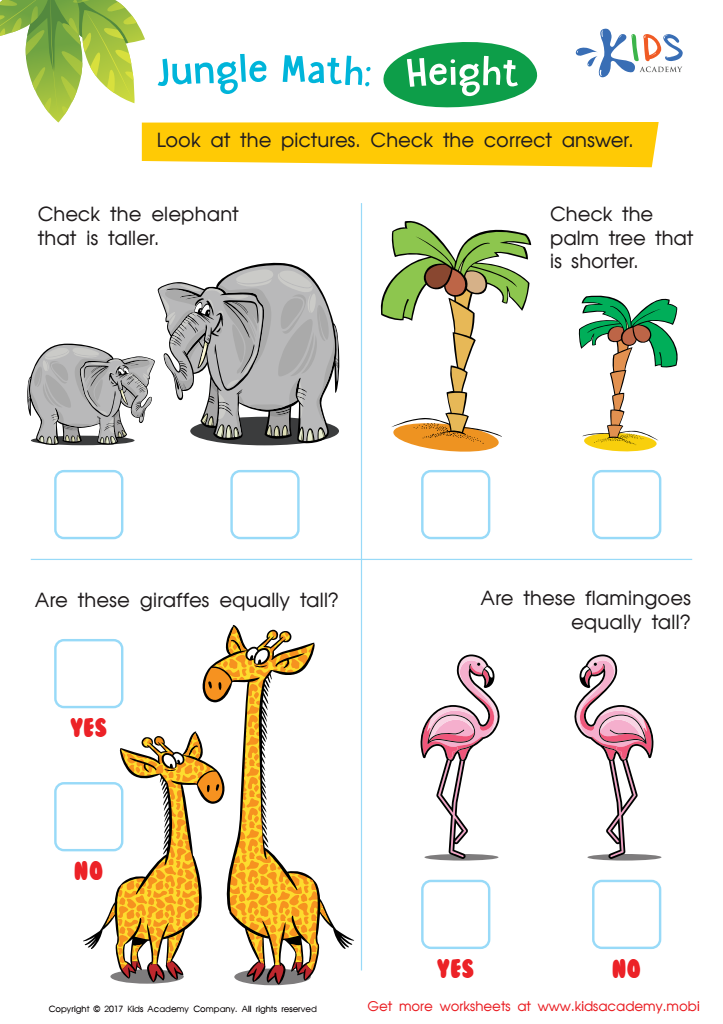

Which Is Taller Worksheet
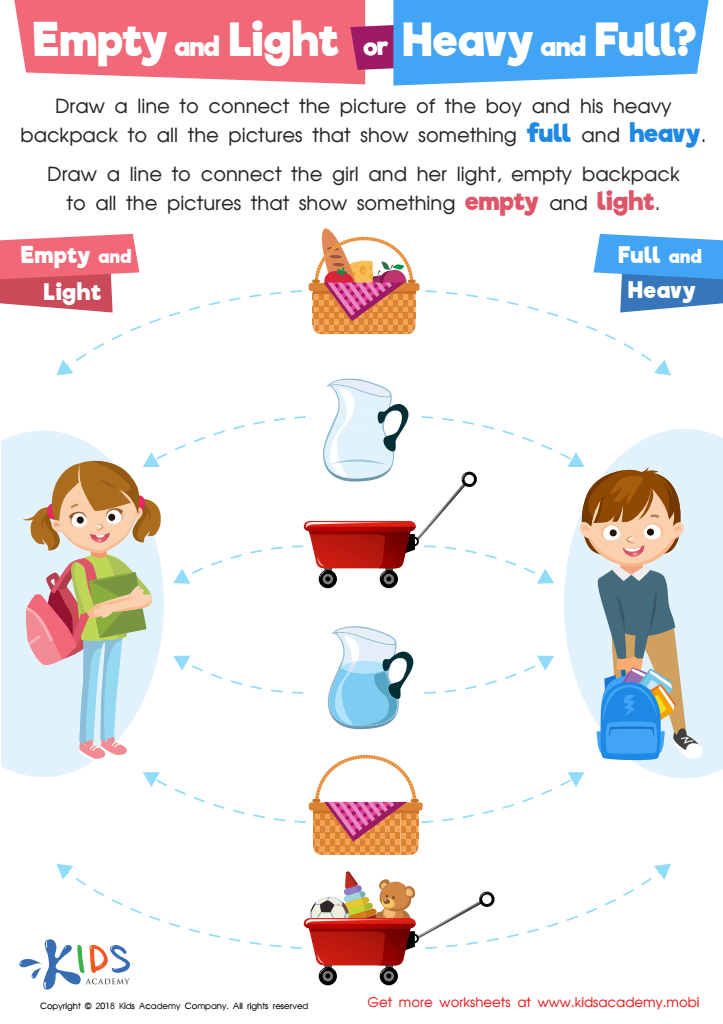

Empty and Light or Heavy and Full? Worksheet


Years Worksheet
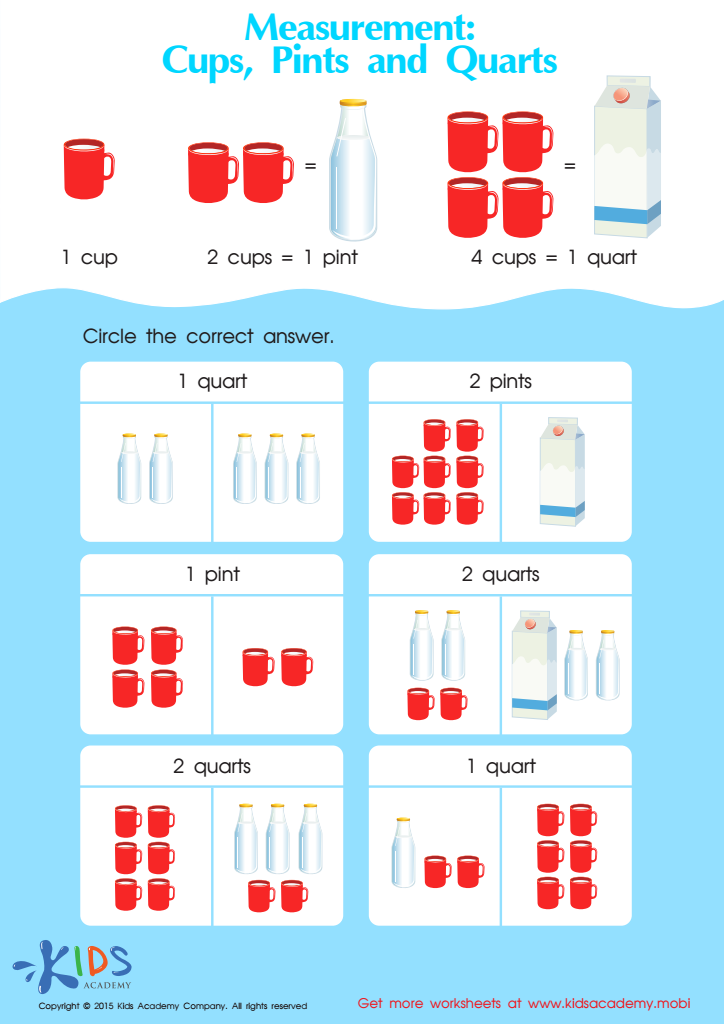

Cups, Pints and Quarts Worksheet
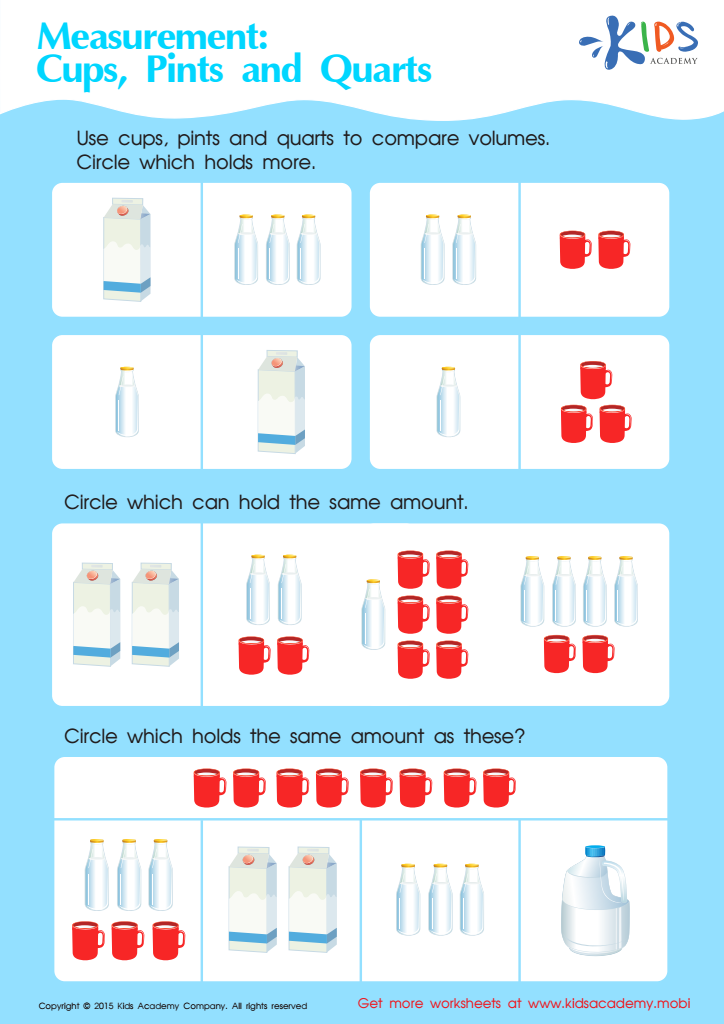

Measurement: Compare Volumes Worksheet
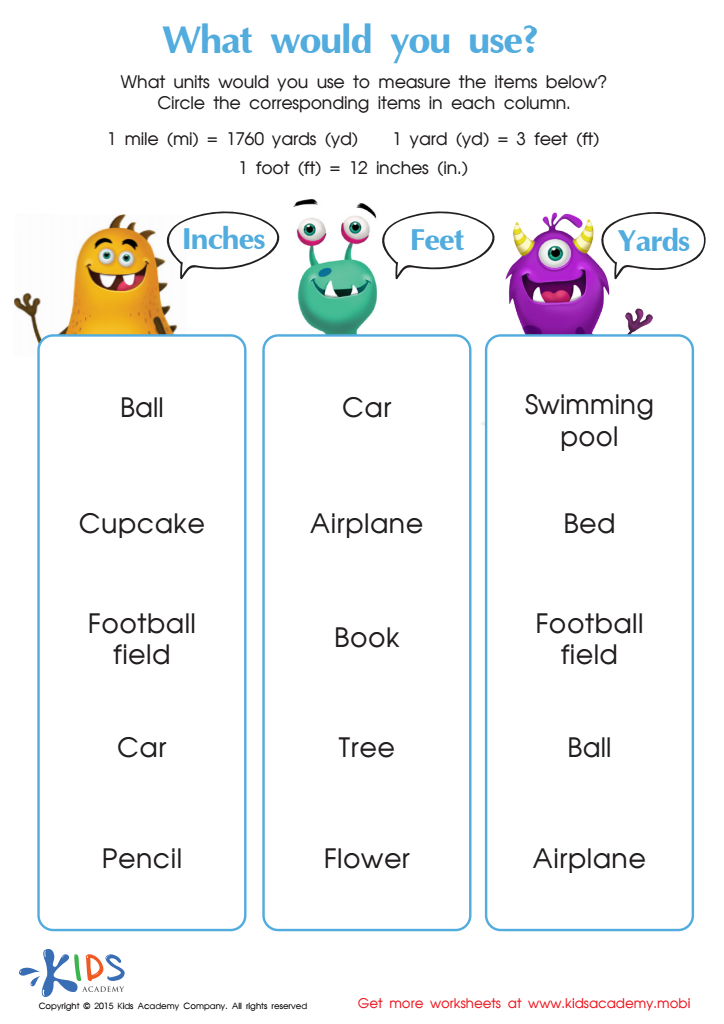

Learning about measuring objects in inches, feet and yards Worksheet
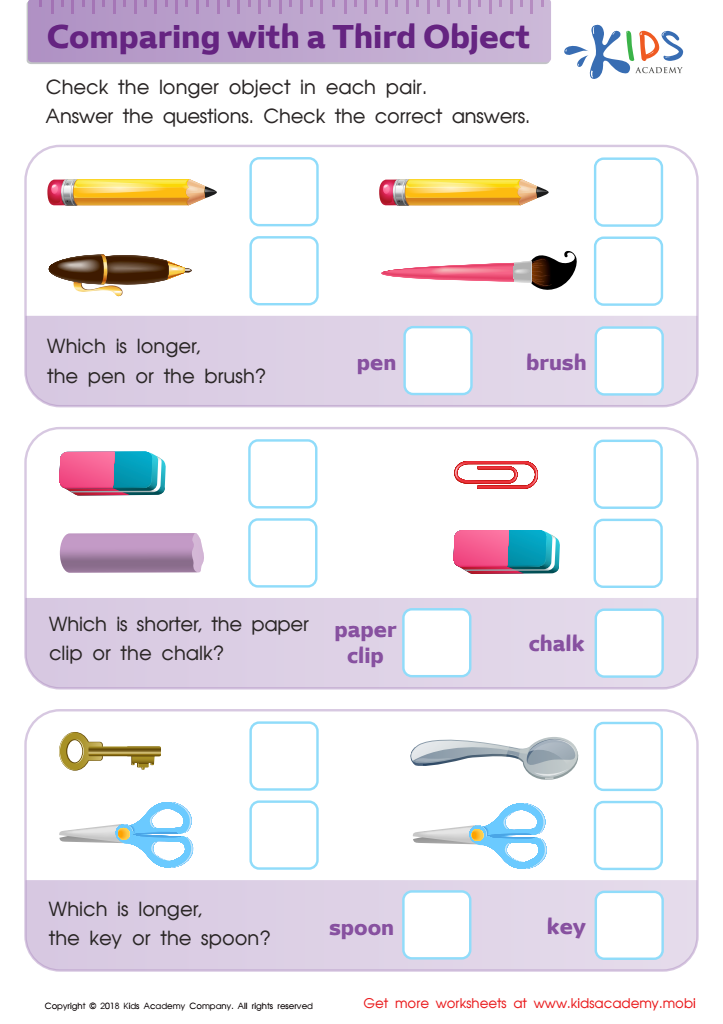

Comparing with a Third Object Worksheet
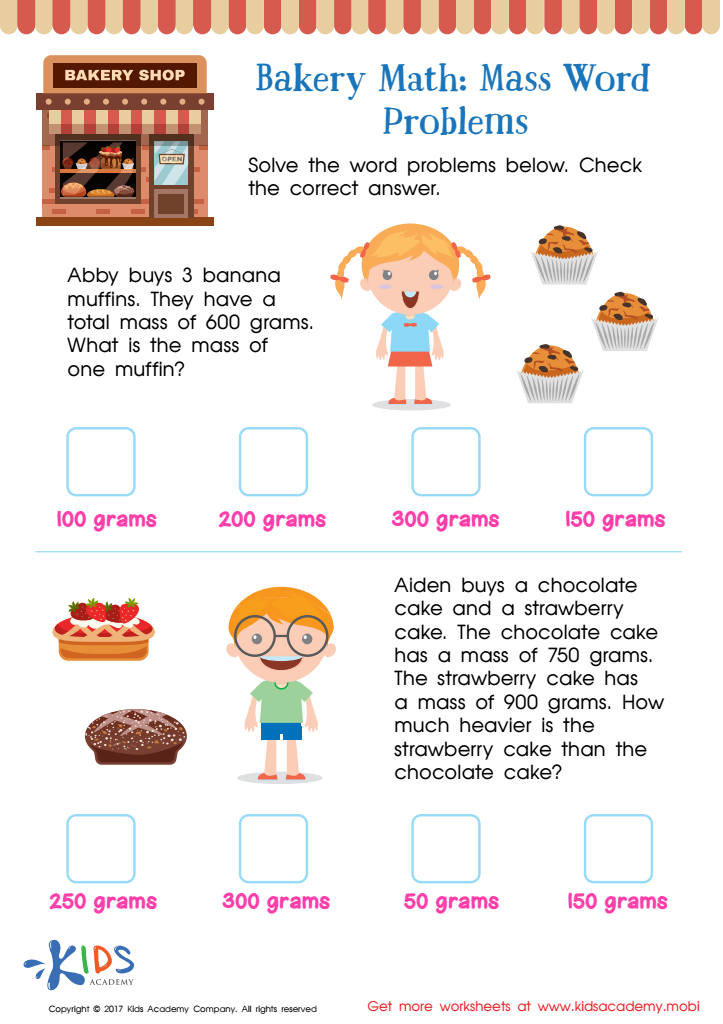

Mass Word Problems Worksheet
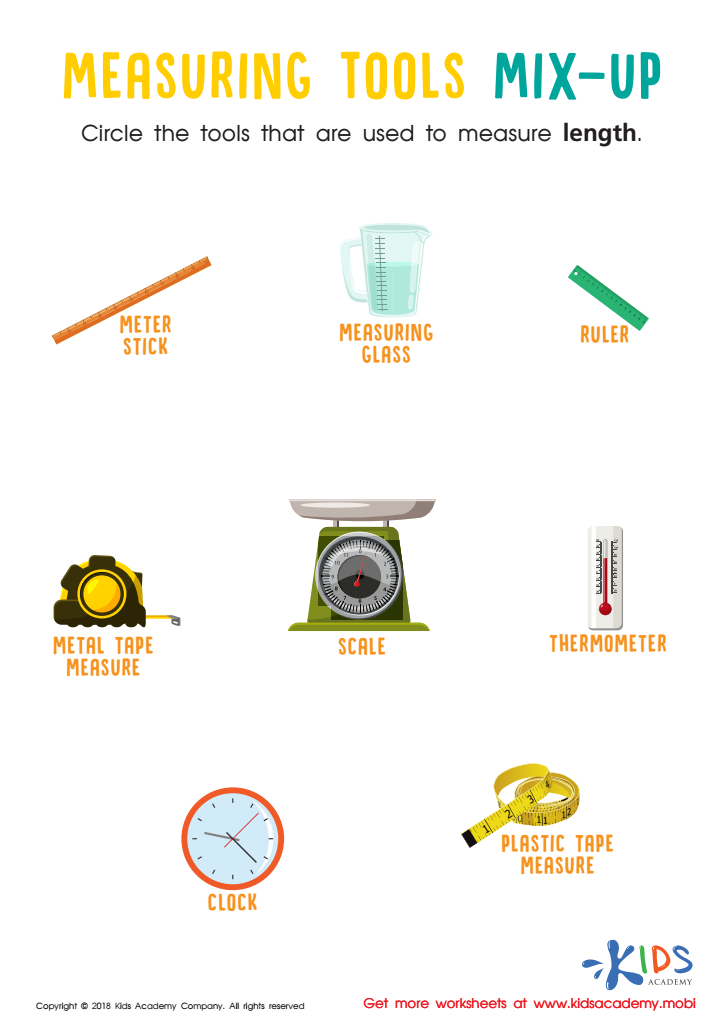

Measuring Tools Mix–up Worksheet
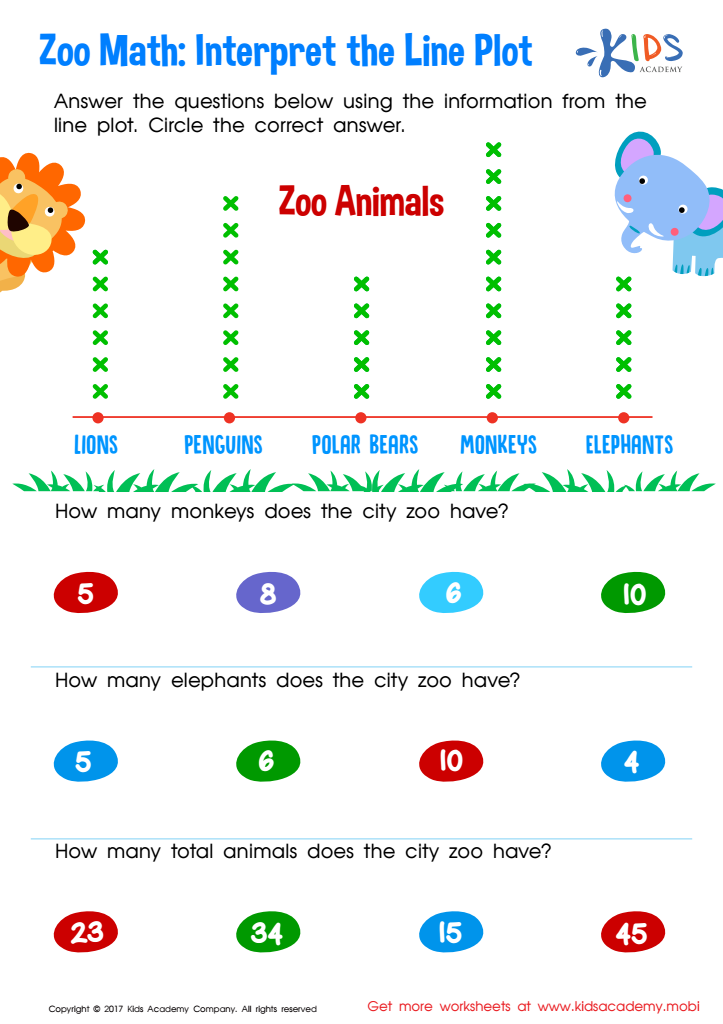

Interpret Line Plot Worksheet
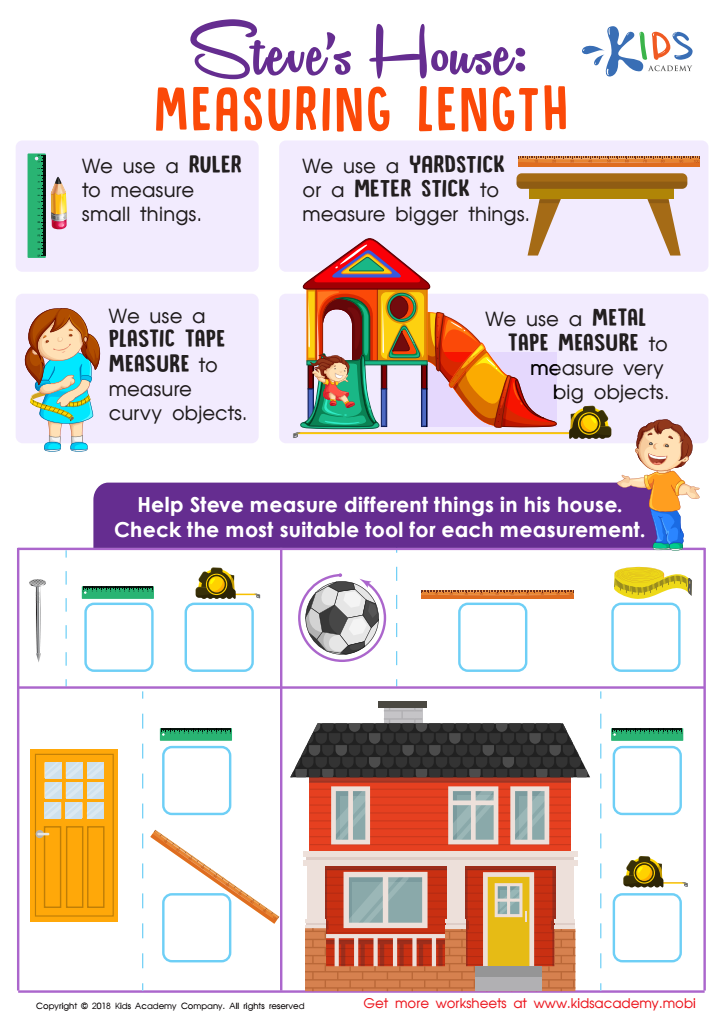

Steve's House: Measuring Length Worksheet
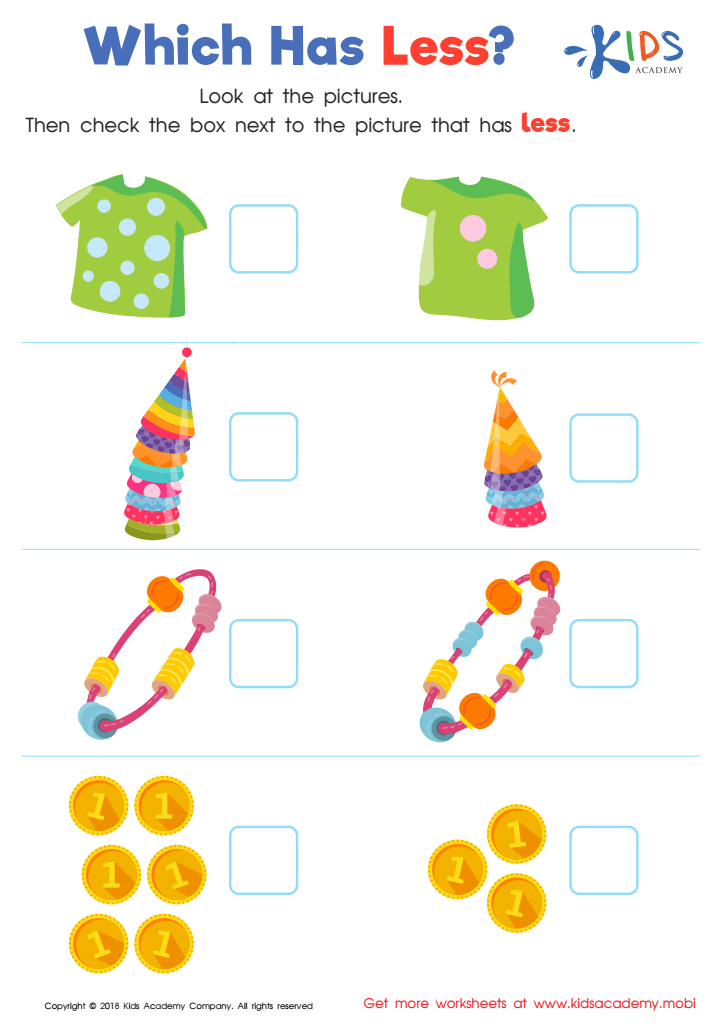

Which Has Less? Worksheet
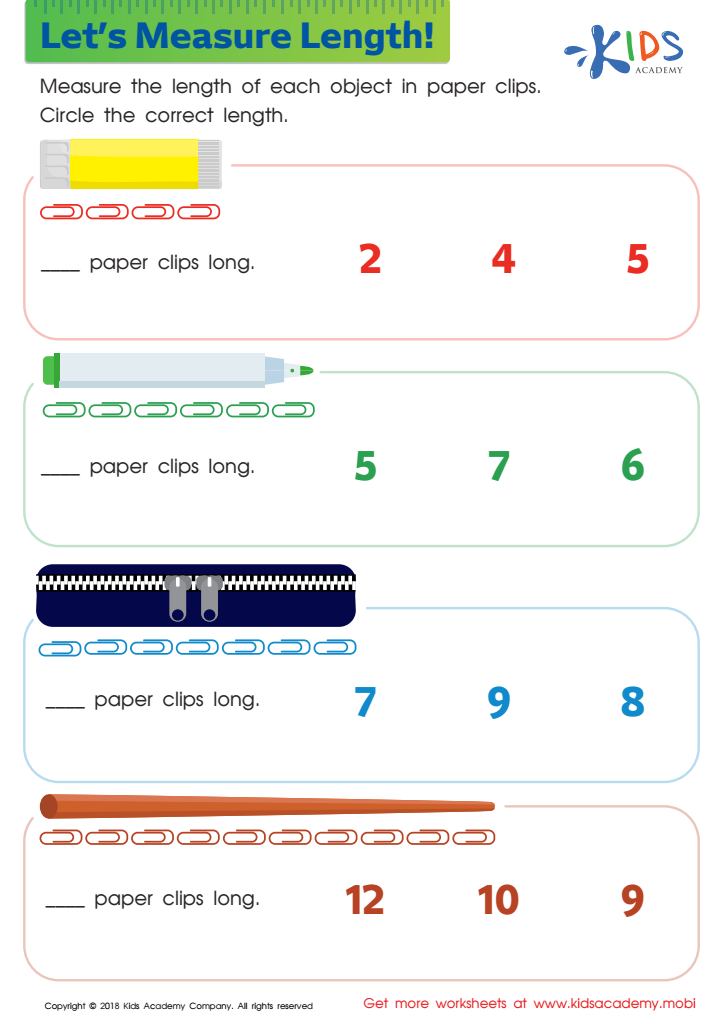

Lets Measure Length Worksheet
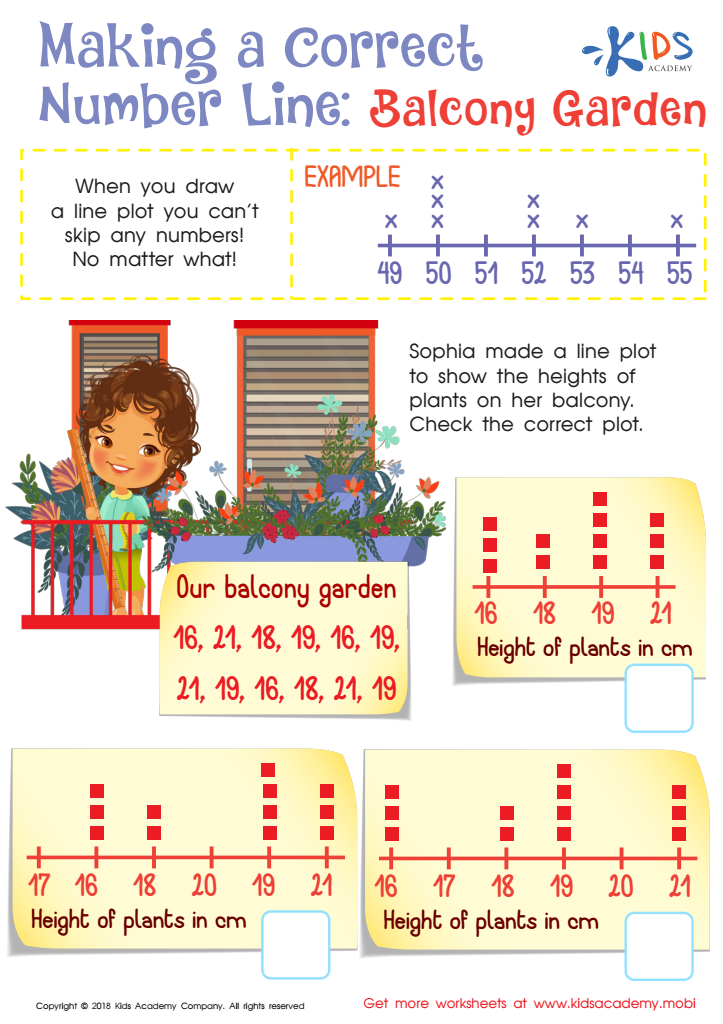

Making a Correct Number Line: Balcony Garden Worksheet
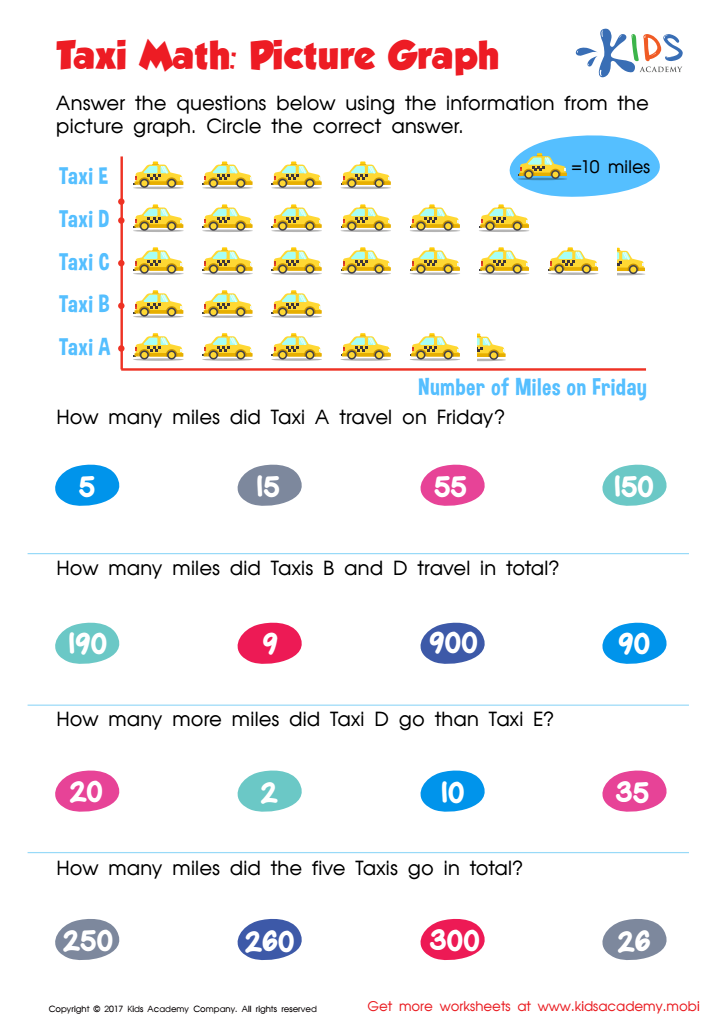

Taxi Math Worksheet
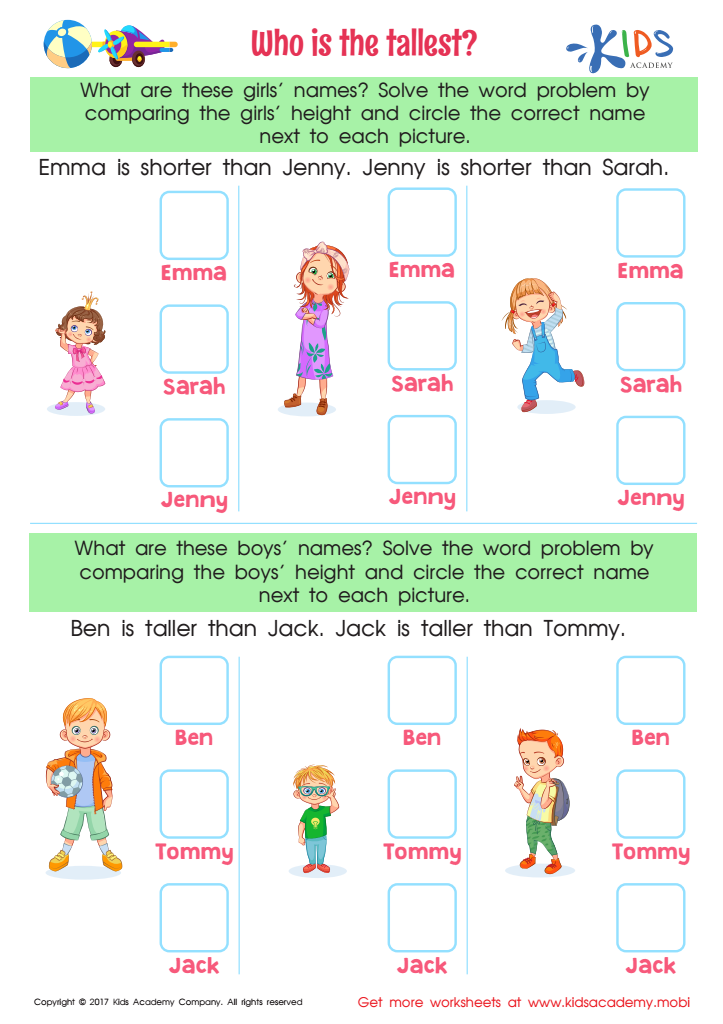

Who Tallest Printable
Measurement is a crucial concept for children ages 6-9 as it lays the foundation for numerous life skills and academic subjects. For parents and teachers, understanding the importance of measurement can greatly enhance a child's cognitive development and real-world proficiency. Firstly, mastering measurement helps children grasp fundamental mathematical concepts such as length, height, weight, volume, and time. This foundational knowledge supports their later understanding of more complex math topics, fostering a stronger educational trajectory.
Moreover, measurement activities stimulate critical thinking and problem-solving skills. When children measure objects, compare quantities, and understand units of measurement, they sharpen their analytical abilities. Additionally, measurement is integral to everyday tasks like cooking, shopping, and even planning trips, making it practically relevant.
Parents and teachers should also note that measurement activities promote fine motor skills. For example, using rulers, measuring cups, or scales requires precision and coordination, advancing children's dexterity and spatial awareness.
Lastly, measurement experiences can be paired with collaborative projects, encouraging teamwork and communication skills. When children work together, discussing and comparing their findings, they learn to articulate ideas and listen to others.
Thus, investment in teaching measurement practices provides children with indispensable tools for academic success and everyday functions, nurturing well-rounded, confident individuals.
 Assign to My Students
Assign to My Students















